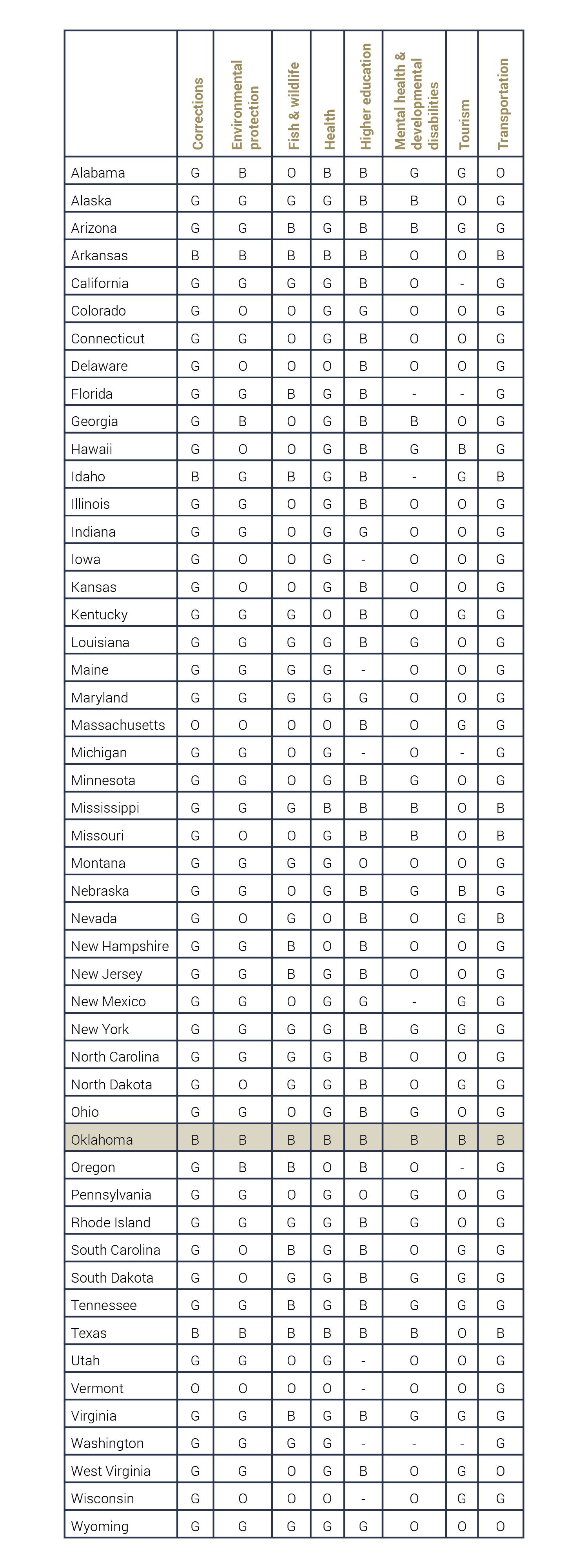
Good Government
Oklahoma’s clumsy executive branch
Trent England | February 4, 2019
It’s basic civics: the first branch of government makes the laws, the second carries out the laws, and the third deals with disputes about the laws. The first branch—the legislature—is elected by the people. The second branch—the executive—is more complicated. It is made up of all sorts of agencies, covering everything from law enforcement and prisons to health and welfare programs.
While the legislature benefits from lots of different viewpoints and extended debate, the executive needs to be efficient. It needs to get things done. After all, the lawmaking process only matters if the laws made get carried into effect.
What is the best way to get things done? Is it a series of disconnected committees (boards and commissions) and layers of vaguely shared authority? Or is it a clear structure of delegated power where everyone knows where the buck stops? No person in his right mind would choose option one.
Oklahoma state government has, over time, become a lot more like option one than option two. In fact, it has become an outlier among state governments, as the chart below shows. Most states allow the top executive—the governor—to choose agency directors and to hold them accountable.
To achieve more effective government in Oklahoma, we desperately need to reform the structure of our executive branch.

Key
G = Governor Appointed
B = Board Appointed
O = Other
- = N/A
Data from Book of the States 2018, Chapter 4: State Executive Branch, Table 4.10 Selected State Administrative Officials: Methods of Selection.

Trent England
David and Ann Brown Distinguished Fellow
Trent England is the David and Ann Brown Distinguished Fellow at the Oklahoma Council of Public Affairs, where he previously served as executive vice president. He is also the founder and executive director of Save Our States, which educates Americans about the importance of the Electoral College. England is a producer of the feature-length documentary “Safeguard: An Electoral College Story.” He has appeared three times on Fox & Friends and is a frequent guest on media programs from coast to coast. He is the author of Why We Must Defend the Electoral College and a contributor to The Heritage Guide to the Constitution and One Nation Under Arrest: How Crazy Laws, Rogue Prosecutors, and Activist Judges Threaten Your Liberty. His writing has also appeared in the Wall Street Journal, USA Today, Washington Times, Hillsdale College's Imprimis speech digest, and other publications. Trent formerly hosted morning drive-time radio in Oklahoma City and has filled for various radio hosts including Ben Shapiro. A former legal policy analyst at The Heritage Foundation, he holds a law degree from The George Mason University School of Law and a bachelor of arts in government from Claremont McKenna College.